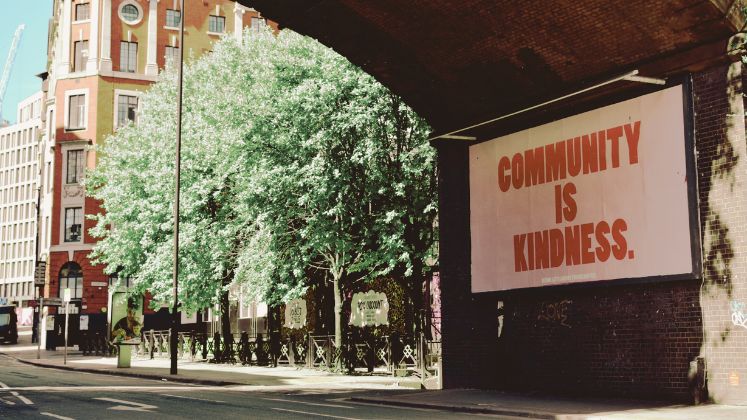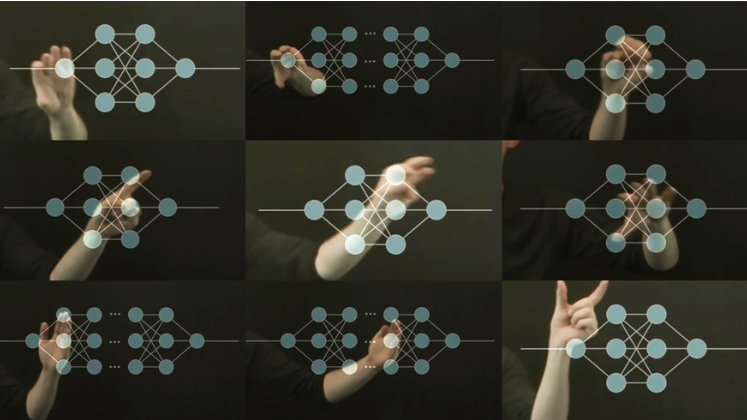Does all policy research benefit from co-production? Matthew Johnson, Elliott Johnson, Irene Hardill and Daniel Nettle argue that the key benefits co-production for policymaking lie not in areas of high consensus, but in honing material arguments and narratives that can shift the boundaries policymaking.
Across research and policymaking, co-production is often hailed as a panacea for creating inclusive and useful outcomes. The Labour Party’s recent announcement that it would introduce citizens’ assemblies to resolve complex policy issues being only the most recent example. However, does co-production lead to positive change, especially if it is methodologically divorced from political decision making?
Co-production and its discontents
The critical challenges we face as a society are resource oriented. Finite resources with regard to climate change and poor distribution of resources with regard to inequality, poverty and insecurity. We need to stop using some resources to emit carbon and redistribute others to reduce inequality, poverty and insecurity. We don’t need minute-by-minute engagement with communities to know this. Imposing critical policies to avoid human extinction ought to be fine. Creating participatory processes to advance epistemic justice to include excluded groups that hold certain forms of knowledge and lived experience, is not always possible or necessary.
the distributive policies with which we are concerned are those that are least likely to be subject to disagreement within the communities most often cited as beneficiaries of co-production
What impact would co-production have on, say, housing policy which produces greater access to better and more affordable housing? There might be meaningful participation on where, how and in what way housing is built, but if the concern is inequality and poverty mitigation there are evidence-bases that are distinct from community insight into how to build houses. There is however a more effective way of avoiding empty gestures. This is to ensure that people who have a material interest in addressing poverty and inequality are not excluded from positions of power and decision making.
We need to be clear that co-production can, and often is, used inappropriately as an empty form of service for the sake of reputation enhancement within institutions or to meet Patient and Public Involvement requirements. A significant aspect of this trend is that the distributive policies with which we are concerned are those that are least likely to be subject to disagreement within the communities most often cited as beneficiaries of co-production.
Adversarial co-production
In our recent work we have sought to expand co-production by adapting behavioural science’s method of adversarial collaboration for use in social science. Adversarial collaboration involves colleagues with opposing views on a method, approach or hypothesis working together to design studies that enables both parties to have faith in the validity of any findings. We adapted the approach by creating adversarial co-production: essentially, working with people who strongly oppose a specific policy to develop arguments to persuade those like them of the merits of the policy. We have suggested that this can address policy impasses by creating pathways to implementation.
Adversarial co-production has been critiqued for three reasons:
1. it does little to address epistemic injustice, with regard to the production of policy, insofar as the policies examined using the method have been designed by ‘experts’;
2. people are either (or both) incapable of voting in their own interests or always vote in their own interest and therefore there is no need for working with political adversaries (those that disagree
with us)
3. it runs the risk of exacerbating social challenges by engaging those who oppose evidence bases, such as climate change sceptics.
It’s worth working through these criticisms. Genuine points of disagreement can be found on cultural issues for which there are few calls for co-production. There are many different seriously excluded communities that have positions on application of criminal justice to homosexuality, adultery and gender norms that are subject to ‘epistemic injustice’. However, these are the last areas in which calls for co-production are made. Even if co-production on such subjects is likely to produce the most divergent public policy. This is because engaging with such views is quite rightly viewed as beyond the Overton Window: it is unacceptable and against the standards that are set for policy in a modern liberal democratic society.
Shifting the Overton Window
One of the most-naïve aspects of policymaking discourse following the Global Financial Crisis is the presentation of co-production as counter-factual. If only policymakers worked with communities subject to their decisions then policies would advance their interests. For example, if then Chancellor of the Exchequer George Osborne had simply worked with the people of Ashington (a distressed former mining community in North East England), then he would not have pursued the radical neoliberal reforms implemented in the 2010s that have caused such harm. The point is that those policies were deemed valuable precisely because of their impact on wealth distribution.
co-production has had very little impact on the political direction of travel over 14 years, despite its ubiquity within social science
In this respect, co-production has had very little impact on the political direction of travel over 14 years, despite its ubiquity within social science. Throughout this period, academics have endorsed the notion that any redistributive response is impossible for electoral reasons: British voters hate redistribution and, as such, any measures to that end fall outside the Overton Window. That belief is just wrong. Across our recent work, we find that people understand very clearly the need for redistribution and are receptive to policies that achieve that effectively, including through radical reforms such as Basic Income.
The reason we find ourselves in our period of crisis and the reason for engaging in adversarial co-production lies in the fundamental difference between progressive and regressive policymakers in advancing their policies. While the former continue to refer to abstract, value-based justifications with little relevance to the impact of policies on people’s lives, the latter consistently articulate policies in ways that speak to people’s material interests. It’s notable that polling suggests Conservative support is declining now that no salient material justification can be made for any remaining policies. The point, here, is that regressive policymakers have consistently been able to get people to vote against their fundamental interests through effective narrative formulation and it’s that narrative formulation that we need to understand.
Adversarial co-production is a means to that end: what salient features of redistributive evidence-based policy persuade voters to support policies and how can those features best be articulated?
Adversarial co-production is a means to that end: what salient features of redistributive evidence-based policy persuade voters to support policies and how can those features best be articulated? Individuals themselves are well placed to do this. While we may not always be aware of all the factors that influence us, the work we are engaged with suggests that we are often experts on persuading ourselves and those around us. That lived experience genuinely is important in ways that are crucial to understanding how we can address existential threats.
It is in this area that co-production really does offer value and justifies working with opponents. If we are to persuade climate change deniers of the value of a Green New Deal, we need those deniers to explain the features of the policy that would persuade them to support it even though they believe climate change is a conspiracy. We shouldn’t cherish their belief that climate change is a hoax to uphold epistemic justice, they’re just wrong, but we can work with them to make electoral conditions possible.
This post draws on the authors’ article, Breaking the Overton Window: on the need for adversarial co-production, published in Evidence & Policy.
The content generated on this blog is for information purposes only. This Article gives the views and opinions of the authors and does not reflect the views and opinions of the Impact of Social Science blog (the blog), nor of the London School of Economics and Political Science. Please review our comments policy if you have any concerns on posting a comment below.
Image Credit: igor kisselev on Shutterstock.







